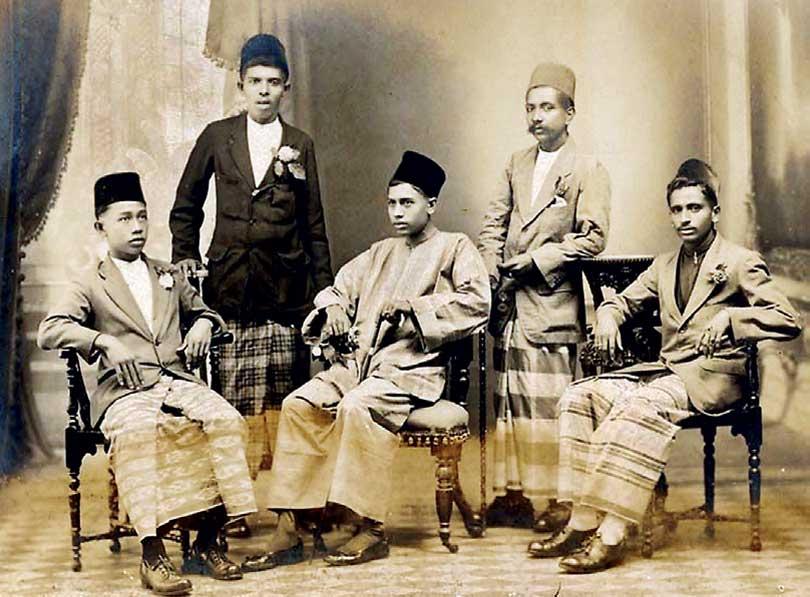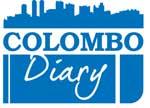23 Jul 2019 - {{hitsCtrl.values.hits}}

Tamil Muslim traders in Penang in Malaysia 19th Century
 While the Cholas of the Coromandel coast in Tamil Nadu were known for their maritime conquests and successful trade, with conquest and trade going hand in hand, the Muslims of the Coromandel coast were successful in maritime trade without the aid of conquest.
While the Cholas of the Coromandel coast in Tamil Nadu were known for their maritime conquests and successful trade, with conquest and trade going hand in hand, the Muslims of the Coromandel coast were successful in maritime trade without the aid of conquest.
However, ultimately,with the advent of European traders, who operated under entirely different principles, the Muslims had to yield to the hard reality of political power and military might.
The Muslims of the Coromandel coast, who were related to the Muslims of Sri Lanka, came from the Arab world as peaceful traders and stayed as peaceful traders right through.
Perhaps because of the non-violent orientation of their vocation, the Muslims of Tamil Nadu were in international maritime business for a much longer time than others, going well into the British Raj. But the absence of political and military backing was not an unmixed blessing. It did have adverse effects on the Muslims’ maritime trading interests when their competitors had begun to use political dominance and military might.
It was when the intolerant Portuguese ruled the roost in the South Asian region (coastal peninsular India and Sri Lanka) that the Muslims in the two countries suffered the most.
According to the Tamil Nadu historian Dr. J. Raja Mohamed, the curtains came down on the Muslims’ maritime trade finally in early 20th Century due to two factors: (1) stiff competition from the British (2) reluctance of the Tamil Muslims to adopt new shipping technology and modern education.
But Srinivasa Rao Vadlamudi of Austin University in the US, says in his Ph.D. dissertation, that Tamil Muslims actually found a way to prosper under British rule too. They carved out a niche for themselves under the Imperial trading system.
Muslim Monopoly
 In his book entitled: Maritime History of the Coromandel MuslimsRaja Mohamed says that before the arrival of the European powers on the Coromandel coast, maritime trade was entirely in the hands of Tamil-speaking Muslims of Arab-Tamil ancestry.
In his book entitled: Maritime History of the Coromandel MuslimsRaja Mohamed says that before the arrival of the European powers on the Coromandel coast, maritime trade was entirely in the hands of Tamil-speaking Muslims of Arab-Tamil ancestry.
Muslims dominated trade with South East Asia so much that British records described the ports on the Coromandel coast as “Moor ports”. Few would now know that modern-day Cuddalore was known as “Islamabad” and Porto Novo or Parangipettai was known as “Mohammad Bandar” or Mohammad harbour.
The Tamil-speaking Muslims of Arab-Tamil ancestry had inherited their dominant position in India-South East Asian trade from the Arabs, who had acquired a virtual monopoly of Indian maritime commerce by 3rd Century BC. According to Raja Mohamed, Arab contact with Tamil Nadu is mentioned in the Tamil Sangam literature of 2nd Century AD.
He contends that the term “Yavana” in Sangam literature did not refer to the Greeks, as generally presumed, but to people hailing from modern-day Yemen. He also says that the term “Sonaka” used to identify Coromandel and Ceylon Muslims of Indo-Arab descent is but a corruption of Yavana. The Mapilla or Moplah Muslims of Kerala were known as Sonaka Mapillas.
The Zamorin of Calicut in Kerala, who needed Arabs to man his ships, even decreed that the Arab traders should marry Malayali women and bring up at least one of their children as a Muslim. The Rowthers made a name for themselves as traders in Arab horses.The Marakkayars (boat people) and Lebbais were expert mariners and traders.
Portuguese Era
But once the pushy, ruthless, cunning and better organized European merchants entered the arena, the Coromandel Muslims began to lose ground rapidly.
And sadly, in their fight for survival, they got no help from the Indian rulers. After the Cholas, South Indian rulers were indifferent to indigenous maritime trade, preferring to leave it to the Portuguese and other European traders. The Indian rulers had even declared trade in spices, gold and silver a Portuguese monopoly.
Prior to the advent of the Portuguese in the early part of the 16th Century, trade in South and South East Asia was free.But the Portuguese, followed by the Dutch and the English, introduced the system of monopolies. Their trade regimes were unfair as they were based on military might and political clout, Raja Mohamad says.
By 1530, the Arabs lost their monopoly over trading in horses. This passed entirely into the hands of the Portuguese. By 1537 the Portuguese had converted to Catholicism, an oppressed fishing community on the Tamil Nadu coast called Paravas.The rejuvenated Paravas were set up to compete with the Muslims in trade and pearl fishing. Pearl fishing, which was entirely in the hands of the Muslims for a long time, went into the hands of the Paravas, Raja Mohamed says.
To control trade in the entire region, the Portuguese established their power over key points like Hormuz in the Persian Gulf, and Malacca in South East Asia. Ceylon too had passed into their hands. The Portuguese used the “cartaz” system (a permit system) by which those who did not have a “cartaz” or permit could not enter a port.
The Tamil-speaking Muslims of Arab-Tamil ancestry had inherited their dominant position in India-South East Asian trade from the Arabs, who had acquired a virtual monopoly of Indian maritime commerce by 3rd Century BC
However, Sundara Sreenivasa RaoVadlamudi of the University of Austin has a different view. In his dissertation “Merchants in Transition: Maritime Trade and Society of Tamil Muslims in the Indian Ocean World, c. 1780-1840,” he contends that the Coromandel Muslims prospered under British rule, though eventually, British laid impediments and their own limited vision stunted their growth.
In 1778, the British East India Company (EIC) took control of Nagore, an important historical port-town, among the cluster of coastal towns inhabited by Tamil Muslims. In 1786, the EIC acquired the island of Penang in Malaya from the Sultan of Kedah.
“These two developments, taking place only a few years apart, occurred at the two ends of a maritime trade route from South India to Southeast Asia and had a significant impact on the Tamil Muslim merchants,” Vadlamudi says.
“In Nagore and Penang, the East India Company sought to develop these ports into important trading hubs. As part of such efforts, the EIC invested in improving the port’s infrastructure, issued concessions to indigenous merchant communities from paying the full rate of port duties, and encouraged the settlement of Indian merchant communities in these two ports.”
“These efforts were aimed at increasing revenue from port duties that could be levied on goods and for procuring goods from Southeast that were necessary for obtaining tea in China,”Vadlanudi says.
Tamil Muslim merchants took advantage of such policies in Nagore and Penang.
“In Nagore, and other South Indian ports that were subsequently won by the EIC in its battles with rival European trading companies, Tamil Muslim merchants settled and traded under the EIC’s authority. Some wealthy merchants such as Muhammad Qassim negotiated favourable contracts to collect revenue on behalf of the EIC administration, a system of managing taxes previously practised by Indian rulers. This allowed Muhammad Qassim to increase his wealth and also his prominence in Nagore. Smaller traders were attracted to Nagore by the system of courts and the granting of trade concessions.”
“Penang lay along existing trade routes between South India and Southeast Asia and Tamil Muslims took advantage of the free trade policies at Penang to trade and settle there.”
“The developments in Nagore and Penang show that the expansion of the EIC along the Coromandel coast and in Southeast Asia provided opportunities for Tamil Muslim merchants to trade in EIC-controlled ports, both in South India and Southeast Asia,”Vadlamudi says.
Changes in 19th Century
However, in the 19th Century, concessions from paying the full port duties that were granted to Tamil Muslims were gradually withdrawn, Vadlamudi notes.
The EIC began to implement a system of transit duties that aimed to collect duties at multiple stages from the production of a good till its export. By 1801, the EIC had emerged as the dominant military power in South India and controlled a vast territory. The development of the system of transit duties emerged alongside the expansion of administrative mechanisms by the EIC,” Vadlamudi points out. These developments adversely affected Tamil Muslim maritime interests.
19 Apr 2024 2 hours ago
19 Apr 2024 2 hours ago
19 Apr 2024 3 hours ago
19 Apr 2024 4 hours ago
19 Apr 2024 5 hours ago